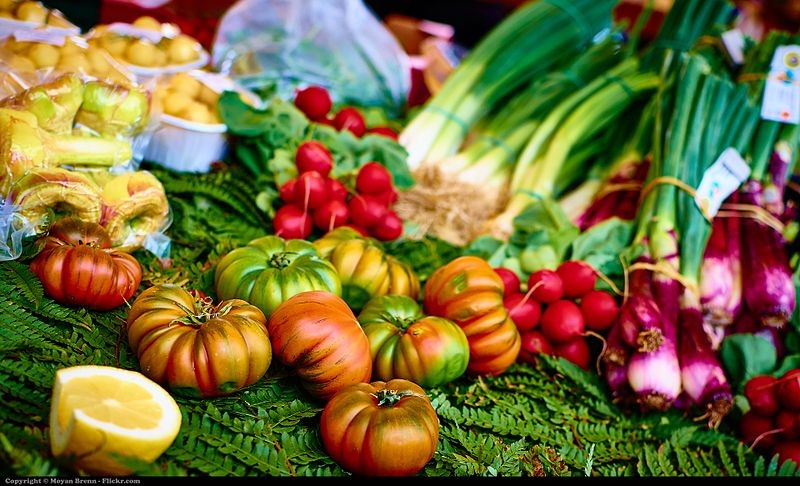An anti-inflammatory diet is a healthful eating plan that may help to reduce chronic low levels of inflammation that otherwise might increase the risk of various chronic diseases.
In essence, an anti-inflammatory diet is a remedy to battle soreness, irritation, or inflammation in the body.
An Anti-inflammatory Diet
Most people are under the impression that “inflammation” is always bad. Even though it generates unpleasant side effects, inflammation is actually a healthy response by our immune system.
When an injury occurs…or viruses, allergens or bacteria enter the body…our immune cells act quickly. To rid the body of an offending agent we may cough or sneeze.
In addition, signaling us to be gentle with a delicate area of our body we may feel swelling and pain at the location of a cut or injury. Blood flows in rapidly, which may produce warmth or redness. These are ways of letting us know that our immune system is fighting invaders or repairing damaged tissue. As healing takes place, inflammation gradually settles down.
Inflammation becomes harmful when it is prolonged and begins to damage healthy cells, creating a pro-inflammatory state.
Sometimes an unhealthy lifestyle from high stress, lack of exercise, and calorie-rich diets can trigger chronic low levels of inflammation throughout the entire body, termed metaflammation.
This type of low-grade inflammation does not usually produce noticeable symptoms, but over time metaflammation can pave the pathway for chronic conditions like cardiovascular disease, non-alcoholic fatty liver disease, type 2 diabetes, Alzheimer’s disease, and certain cancers (e.g., breast, colon).
Foods That Help
Anti-inflammatory diets may be promoted to help relieve inflammatory conditions. Research on its exact mechanism is not conclusive, but, there are several foods that are believed to interfere with the inflammatory process.
Please note there is no single anti-inflammatory diet plan. Generally it emphasizes eating a wide variety of vegetables and fruit, herbs, unsaturated fats, minimally refined whole grains, tea, coffee, spices, and oily fish.
The Mediterranean diet and DASH diet are popular dietary plans that are made up of many anti-inflammatory foods.
An anti-inflammatory diet plan not only highlights specific foods and food groups but limits other foods that may contribute to metaflammation such as refined sugary foods and beverages, fatty cuts of red meat, and excess alcohol.
How It Works
An anti-inflammatory diet isn’t made up of strict rules to follow; like portion sizes or calories. On the contrary, instead of focusing on eating one or two specific nutrients or foods, this diet suggests a variety of anti-inflammatory foods to eat on a daily basis. This makes certain a wider variety of protective food components… some that may work to boost immunity.
These foods provide fiber, antioxidants, and plant chemicals (phytochemicals) that help in preventing cellular stresses, slow down digestion to prevent surges in blood glucose restrain inflammatory signals caused by the immune system, and promote healthy gut microbiota.
Moreover, they may also positively affect the composition of fat cells to further reduce inflammation.
Healthful Eating Plan
The anti-inflammatory diet does not include rigid meal plans. It is flexible. However, this requires people to plan their own meals and find recipes that include the beneficial food and food groups on the plan. People who aren’t used to meal planning or cooking may need more specific guidance.
Calorie levels and portion sizes are not highlighted on this plan. So, it’s possible to gain weight if excessive portions are consumed.
The following are examples of anti-inflammatory foods:
- Vegetables
- Fruits
- Herbs, spices (turmeric, ginger)
- Dark chocolate with at least 70% or higher cocoa solids
- High-fiber whole grains
- Legumes
- Monounsaturated fats (nuts, seeds, olive oil, avocados, nut butters)
- Polyunsaturated omega-3 fats (aquatic foods including sardines, salmon, herring, mackerel, and walnuts, flaxseeds, chia seeds)
- Tea
- Coffee
- Moderate amounts of alcohol (wine, beer)
Examples of inflammatory foods to minimize:
- Fried foods
- Sweetened beverages like soda, juice drinks, iced tea
- Excess alcohol
- An excess of refined carbohydrate foods like pasta, rice, white bread
- Processed high-fat meats like hot dogs, bacon, sausage
- Saturated fats like full-fat dairy from cream and butter, partially hydrogenated oils, fatty cuts of meat and poultry
Other aspects aside from diet may help to control inflammation, such as getting enough sleep, exercising regularly, and controlling stress.
Healthy Action Plan
An anti-inflammatory diet is a healthful eating plan. Additionally, it may help to reduce chronic low levels of inflammation that might otherwise increase the risk of a range of chronic diseases.
Popular dietary patterns that are anti-inflammatory include vegetarian diets, DASH diet, and the Mediterranean diet. To aid with meal planning and appropriate portion sizes people may look for the assistance of a registered dietitian familiar with any of these dietary models.
It’s important to integrate other healthy lifestyle factors that positively affect the body’s immune response — along with the diet — such as exercising regularly, practicing stress reduction, and getting a sufficient amount of sleep.